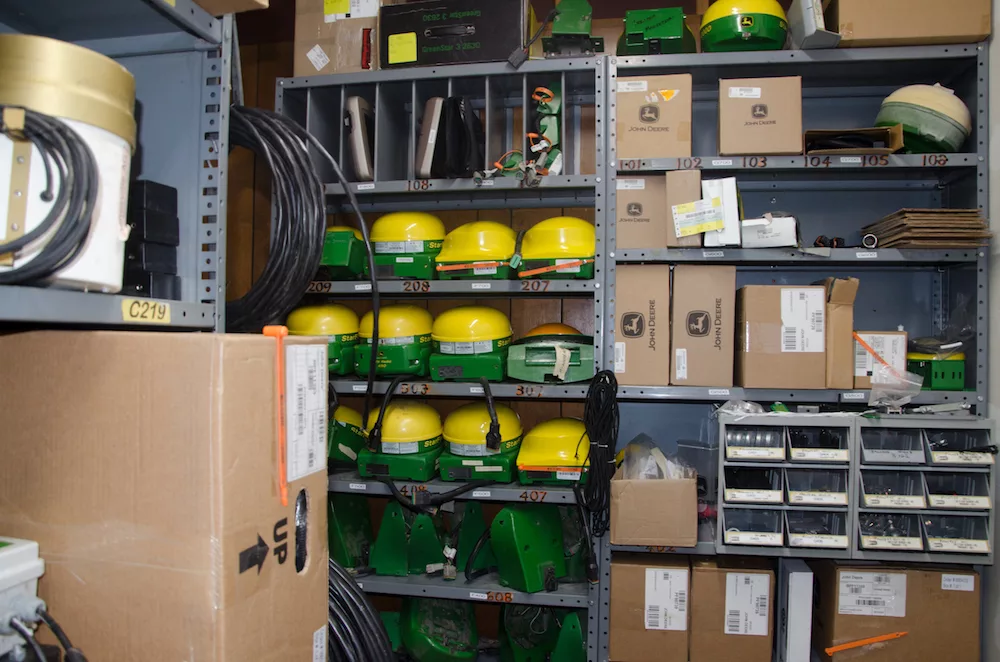Much like with used iron, dealers need to be picky and “buy right” when it comes to selling and servicing used precision farming equipment. Among the top things to consider when it comes to taking in a piece of used precision technology are age and condition of the unit, who potential second customers are and how many of the same unit you have in inventory already.
Age Matters
“At a certain age, I don’t want anything to do with it any more,” says one dealer. “I’m not going to install something that’s 10 years old.”
Another added that his dealership will take a trade up to a generation back because there’s still a market for that equipment. If the equipment gets too old it runs the risk of being obsolete and is hard to sell. “You can’t give too much for it because the guys who want used equipment are usually looking for a cheaper way into precision, so if you got too much into it on the front side, you’re never going to make it on the back side, so think about what you can sell it for and what you need to be given for it when you trade that in or buy a piece of used equipment,” he says.
One dealer says that if a unit is obsolete they send it straight to Craigslist or AgTalk.com. “There are only about a dozen things we’ll take on trade. If it’s not on that list, it goes straight to consignment,” he says.
Buy Right
Dealers agree that you need to be careful how you value used precision technology, and that starts with how much you give the customer for the trade. “How much we’ll give for a trade depends on how many we already have,” says one dealer.
Jason Pennycook, precision farming manager at Johnson Tractor, a 4-store Case IH dealership based in Janesville, Wis., says they’ll give customers 30-40% of the price of the unit new. However he adds, that also depends on the age of the unit.
One dealer suggests that when you take in used controllers or display modules that you take all the cables out. “The cables go straight to the dumpster,” he says. “If a customer is buying a used unit, he’s got to buy new cables for it.”
Regardless of the age of a unit or what you do with the cables, ultimately you should only take the trade if you know you can sell it. “The longer you sit on it, eventually no one’s going to buy it and you’ll have to eat the cost,” Pennycook says.
Dealers also agree that before any used unit is sold it’s up to the dealer to make sure it works, whether that means testing it out at the dealership or sending it off to a service like AgExpress to check it.
Learn More
-
20 Employee Training & Retention Tips for Precision Ag Staff
A diverse group of dealers divulge their secrets to motivating new employees, making the most of training opportunities and why an ‘open book’ approach can be a competitive advantage.




![[Technology Corner] Autonomy & Robotics Take Center Stage](https://www.precisionfarmingdealer.com/ext/resources/2026/01/12/Autonomy--Robotics-Take-Center-Stage.webp?height=290&t=1768253759&width=400)


